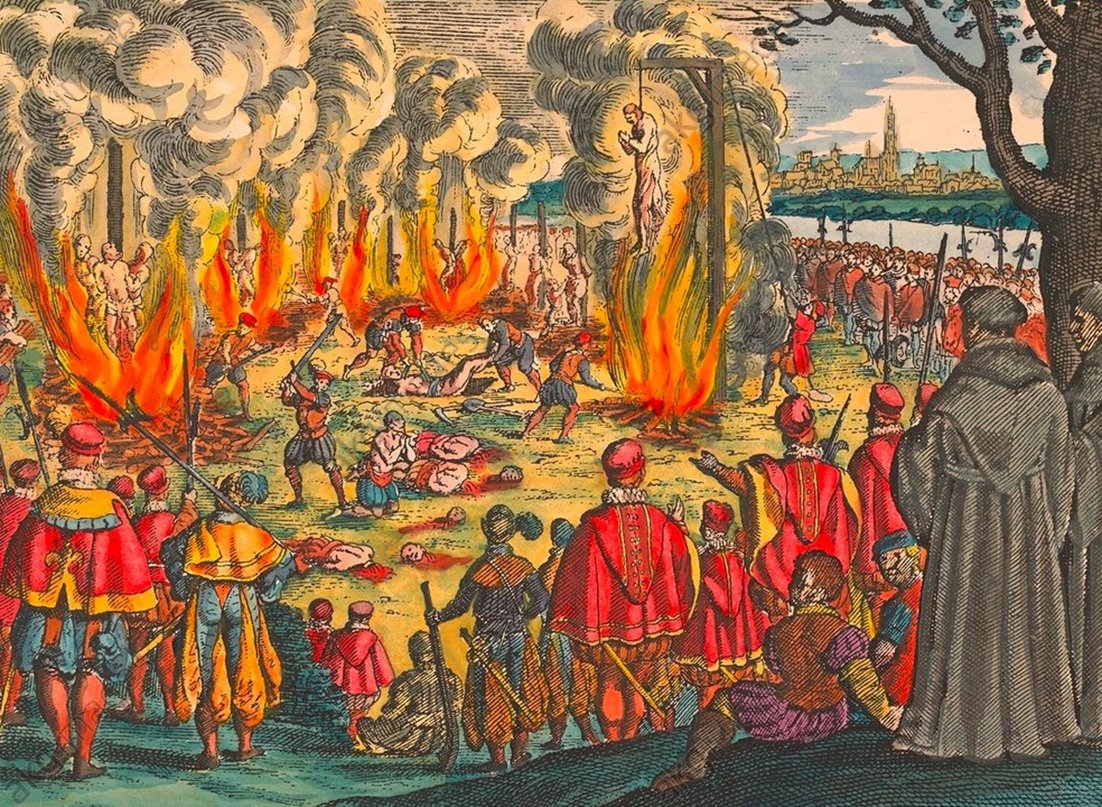
Images from a presentation I'm preparing on the #Calvin Institutes translation.
France in Calvin's Day. Jacques Lefèvre d’Étaples. French humanist Guillaume Budé. Melchior Wolmar.



France in Calvin's Day. Jacques Lefèvre d’Étaples. French humanist Guillaume Budé. Melchior Wolmar.




Calvin's commentary on the Roman Stoic philosopher Seneca's "On Clemency." It didn't sell. Calvin decides to focus elsewhere. His first theological work, Psychopannychia, which his friends urged him not to publish, and which he delayed until 1542. 



One of the inflammatory placards of the infamous affair thereof, 1534. Less successful at promoting the Protestant cause than a press conference at Four Seasons Total Landscaping. Francis I cracks down (a placard was posted on his bedroom door); 35 protestants burned in Paris. 



Calvin, who had been hiding for about a year after being associated with Nicholas Cop's academic address that sounded way too Lutheran to Sorbonne theologians, decided it was a good time to get out of France. He took refuge in Basel, a hotbed of humanists & religious reformers.
For example: Simon Grynaeus, Professor of Greek; Sebastian Münster the Hebrew scholar; Heinrich Bullinger, successor to Zwingli in Zürich. 





There, Calvin publishes his little book on the Reformed faith, The Institutes of the Christian Religion. It sold well. This copy is at Princeton Theological Seminary, once owned by BB Warfield. 



• • •
Missing some Tweet in this thread? You can try to
force a refresh






